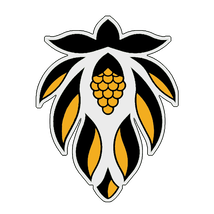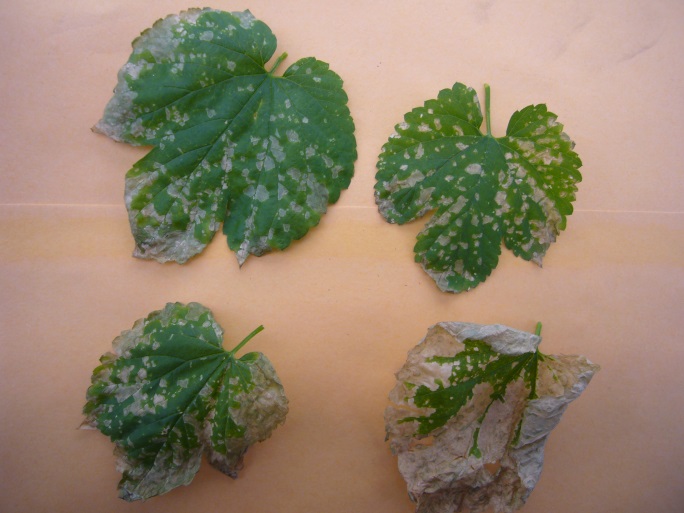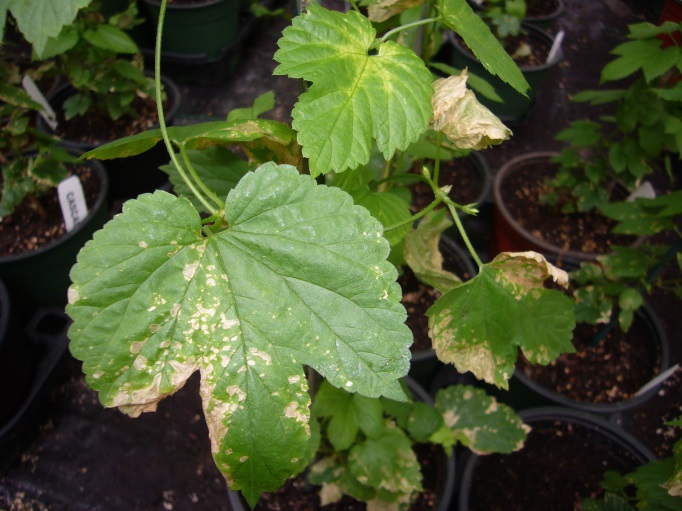|
Hops are a very chlorine-sensitive crop. Hops varieties such as Cascade, Sorachi Ace, Sterling, Horizon, H. neomexicana and many other aroma hops commonly exhibit chlorine toxicity symptoms in many American soil types if fertilized improperly. Many other varieties of hops may not show clear visual toxicity symptoms but are held back and produce less yield. The element chlorine is common in nature and exists as an anion (Cl- ). It carries a negative particle charge and competes with other anions such as sulfates and magnesium if it is out of balance to the other elements. It leaches from soils at about the same rate as nitrates. Excess levels of toxic chlorides reduce soil microbe populations and reduce nitrogen conversion rates. Inputs to soils of chlorine are from natural rainfall, irrigation water, and fertilizers (potassium chloride). Swine and poultry manures have relatively high levels of chlorides compared to cattle manures. Chlorine is commonly found at ambient levels of around 50 mg/l in many soils where hops are normally commercially grown. Many cheaper granular formulations of chemical based NPK fertilizers have very high levels of chlorides. (Potassium chloride is a common source.) Chlorine is also considered a micronutrient and helps regulate the osmotic absorption of other nutrients that plants require. It often accumulates in foliar tissues at levels of 2-20 mg/l-1 of dry matter; even though plants require 10 to 100 times less to grow properly. Thus, deficiency symptoms are rare. A level of 180 mg/l in lighter-type soils is considered the upper range for hops production. Induced chlorine toxicity var. Cascade caused by excess potassium chloride / Great Lakes Hops Foliar symptoms of chlorine toxicity include burnt leaf margins and spotting on mature leaves; yellowing and premature leaf drop. Plants do not respire and convert carbon dioxide efficiently and protein synthesis is reduced. The hop plant appears light green with thin weak leaves; even though there is ample nitrogen present. Hops set cones poorly and are also very light green. The cones have lowered levels of organic acids and light aromatic compounds relative to variety averages.
Feeder roots and new shoots appear scorched. Symptoms of toxicity increase during drought conditions; especially if a fertilizer containing high amounts potassium chloride is applied when there is little rainfall to leach away the excess chloride salts. Onset of symptoms can be very sudden – a stressor caused by heat or a missed irrigation. A concern is when hopyards experience these stress symptoms (which are often diagnosed as a possible potassium deficiency) that the correct action is taken. Muriate of potash (potassium chloride) is often applied to correct the symptoms without doing a soil test first to see what the existing chloride salts levels are. This additional chloride can make the problem worse and ruin the alpha levels of the entire crop. It is commonly recommended to do a pre-emptive soil test to determine nutrient / salt levels when the hop bines are climbing the twines. If chloride levels are high; then an alternate form of potassium fertilizer, such as sulfate of potash or potassium nitrate should be considered. If overall potassium levels are low, and muriate of potash is used; it should be applied in the fall post-harvest season to allow the chlorides to leach out over the winter. Also, poultry or swine manure applications should be switched to cattle or horse manures. If poultry or swine manures are used; it is advised to apply them to alternate rows in alternate years. Fall applications of manures that are tilled into the soil and allowed to fallow over the winter are the most effective. In summary, if hop plants show poor color, vigor, fertilizer response, and symptoms similar to those pictured:
Great Lakes Hops January 6, 2014 reprints by permission. |
Details
Blog AuthorLynn, the head hop grower at Great Lakes Hops has over 30 years of experience in the horticultural field. Browse the blog articles here to find useful growing information for humulus lupulus, based on personal experience and observations at Great Lakes Hops. Archives
January 2020
Categories
All
|




 RSS Feed
RSS Feed